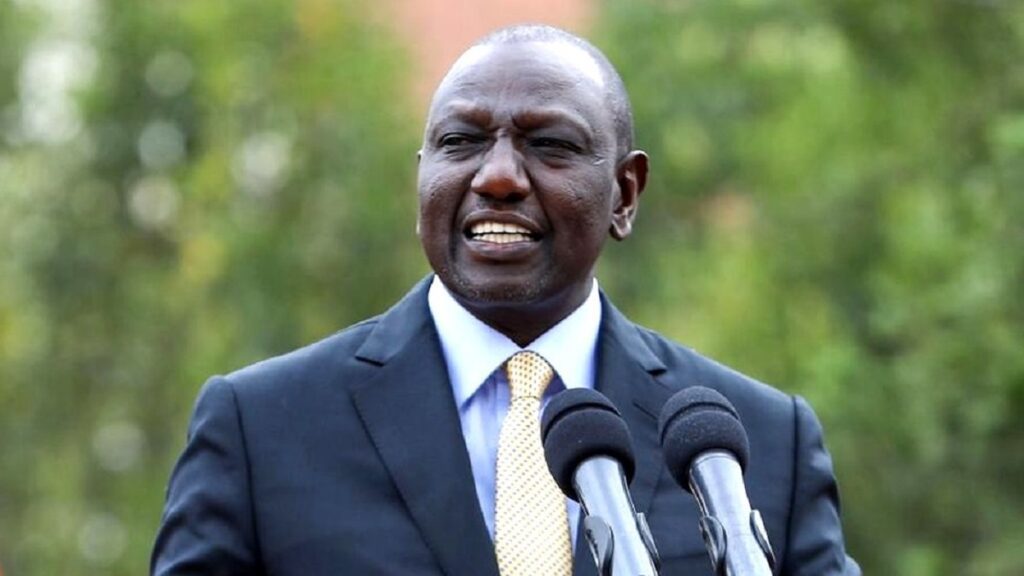Kenya’s Fiscal Challenges Persist as External Risks Ease –Fitch
Achieving the deficit targets in Kenya’s budget proposal for the fiscal year ending June 2025 (FY25) will be challenging given social opposition, but the authorities have made significant progress in addressing the country’s near-term external funding constraints, says Fitch Ratings.
In its commentary note, Fitch said the FY25 budget, presented to parliament on 13 June, proposes a deficit of 3.3% of gross domestic product (GDP) in FY25, from an estimated 5.7% in FY24, and lower than the initial FY25 target of 4.4% in the FY24 budget policy statement.
The budget projects that expenditure as proportion GDP will fall to 22.1%, with recurrent expenditure falling to 15.7%, down from an estimated 24% and 17.2%, respectively, in FY24.
“We expect to revise our deficit forecast for FY25 only marginally to 4.3% of GDP, from 4.4% at the time of the last review in February. The difference from the budget target partly reflects our view that revenue will fall short, consistent with Kenya’s record of revenue underperformance”, Fitch said.
It was noted that Kenya’s nine month of FY24 revenue fell short of target by 1.7% of forecast FY24 GDP.
Since the budget presentation, the government has already backtracked on some revenue-raising measures proposed in the Finance Bill for FY25 that were included in the budget’s estimates.
These include the repeal of tax exemptions on some financial services and a 2.5% motor vehicle tax, which supports Fitch view.
Faced with significant public opposition, the government’s capacity to increase tax rates or introduce new taxes is constrained, leaving it to focus primarily on enhancing tax revenue through administrative tax efficiency measures.
The government has proposed reducing expenditure to balance its withdrawn revenue-raising measures – official statements suggest the latter are equivalent to around 1.1% of FY25 GDP.
“… We believe that planned spending cuts face offsetting pressures, including from rising debt servicing costs and social spending. We expect the government interest payments/revenue ratio to remain at 32% in 2025, well above the median forecast for ‘B’ category sovereigns of 13.7%”.
Fitch said Limited government spending control mechanisms also present ongoing fiscal risks. Analysts expect economic growth in 2025 to remain close to the 5.4% projected in 2024. If the government’s fiscal stance in FY25 is tighter than we expect, it may weigh on growth prospects, Fitch added.
Fitch noted that an international bond issue in February 2024 facilitated the buyback of USD1.44 billion of a USD2 billion Eurobond maturing on 24 June, easing near-term external liquidity pressures.
It added that prospects for additional funding from multilateral lenders should further reduce external financing constraints.
The World Bank has authorised USD1.2 billion of funding under a Kenya Fiscal Sustainability and Resilient Growth Development Policy Operation, and a Staff-Level Agreement has been reached for the seventh review under the country’s Extended Credit Facility and Extended Fund Facility programmes with the IMF. USD976 million remains to be disbursed under the two programmes.
As of 19 June, the Kenyan shilling had appreciated by around 27% since its trough in January 2024, largely reflecting investors’ positive response to the successful buyback operation. This also reduces the burden of meeting external debt payments in local-currency terms.
The government estimates external debt service payments at about USD5.5 billion in FY24. Fitch said such payments will moderate from FY25 but analysts project they will still be over USD3 billion annually in FY25-FY27.
“The Negative Outlook on Kenya’s ‘B’ rating, which we affirmed in February 2024, reflects the sovereign’s large funding needs, risks to external finances, high domestic financing costs, expensive external commercial borrowing and challenges to fiscal consolidation”, Fitch explained.
At the time of the review, the global rating agency stated that a durable easing of external financing constraints and stronger international reserves, or progress on fiscal consolidation, could lead to a revision of the Outlook to Stable. Regional Forum’ll Boost Sustainable Dev’t in W/Africa – ECA
Source link : https://dmarketforces.com/kenyas-fiscal-challenges-persist-as-external-risks-ease-fitch/
Author :
Publish date : 2024-06-21 08:55:47
Copyright for syndicated content belongs to the linked Source.
